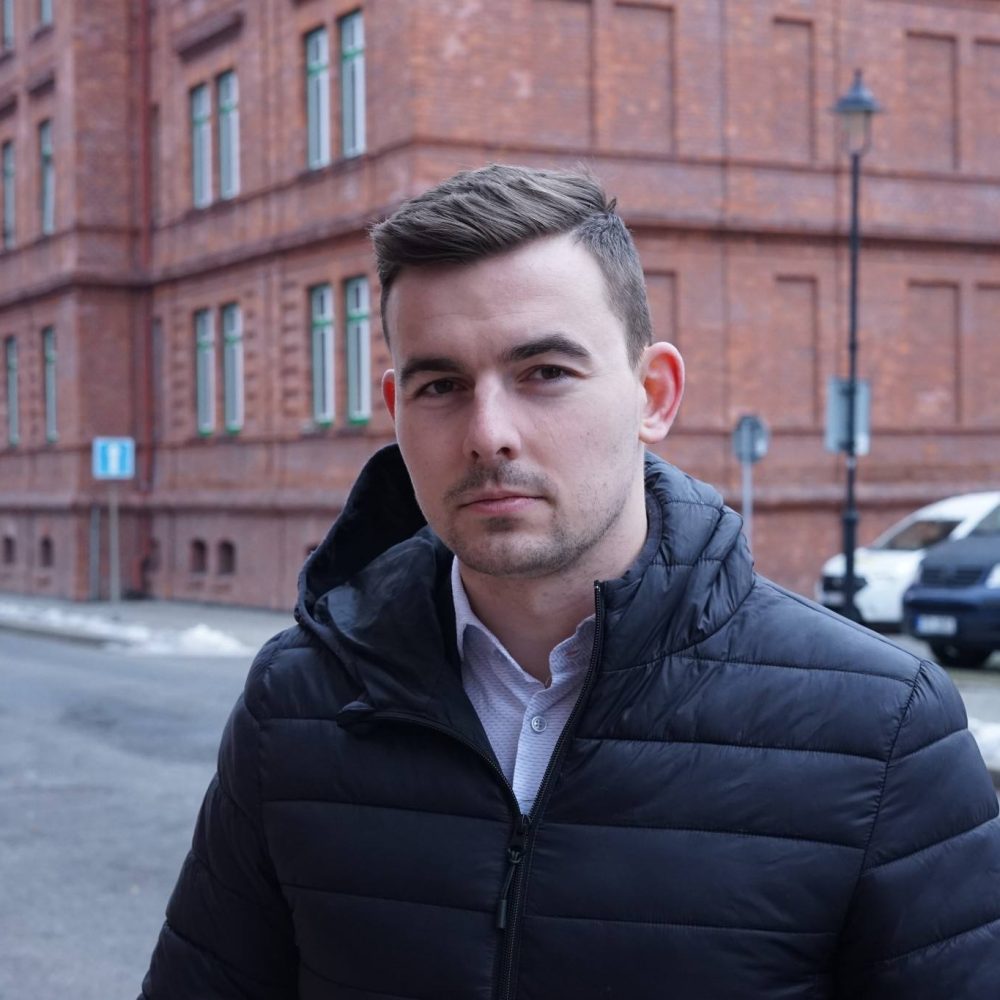There is no doubt that capitalism is responsible for the unprecedented growth of the standard of living of millions of people around the world. In people’s minds it is often associated with the so-called Industrial Revolution of 19th century, a period of immense economic growth, great technological inventions and rapid industrialisation. It has liberated people from poverty. Capitalism continues bringing these benefits, we are still experiencing economic growth and each year there are many human inventions that make our lives more comfortable. The growth, however, is slower and slower as countries abandon the main principle of capitalist system – the freedom.
Capitalism is usually defined as an economic system in which the means of production are owned by private individuals and where the market mechanism, and not the government coercion, is used to allocate scarce and useful resources.
I other words, capitalism is based on voluntary exchanges between free men.
In capitalism it is up to voluntary agreements between the contracting parties to set prices and other conditions of a contract, be it a labour contract or a purchase of a thing. Briefly, capitalism equals freedom. Such freedom bears fruit in the form of economic growth.
Of course capitalism doesn’t mean that we always get what we wish. Some people are more capable than others, some are luckier. But we must be aware that the differences in luck and in capabilities cannot be compensated without eliminating freedom and without serious consequences of such elimination.
Socialism, on the other hand, is based on state ownership of capital and land and on the allocation of scarce resources by government decisions whereas these decisions are made in favour of some people and at the expense of others. We can clearly understand that without this government regulation the free people would make different decisions which would lead to different allocation of resources. As I will show later, this difference in allocation of resources has consequences.
A system in which we live is something between capitalism and socialism.
Most of goods are owned by private individuals or entities who are free to use, hire or sell them, but many enterprises are owned and run by the government. Also, while most of prices are set in the market, there are many cases of regulation, such as the rent control, production quotas, subsidies, etc.
Furthermore, the government takes about half of peoples’ income through different taxes. We are free to make decisions only about half of our own income. Spending decisions about the other half are left to the politicians and government officials. In other words, one important production factor, the labour, or we, the people, is half-owned by the government.
We can therefore hardly fully enjoy the fruits of capitalism, the fruits of voluntary exchange.
Invisible hand
Many economists have been fascinated by the fact that millions of people are engaged in various activities and that they supply the market with millions of items without any single plan or without any directive or government decision. The market process thus resembles the processes in the nature where species compete with each other and use every niche to their benefit. What in the realm of nature is driven by natural selection and natural diversity is in the realm of human society similarly driven by an “invisible hand” and market competition. In his famous book, The Wealth of Nations, Adam Smith found that the driving force of human economic activities is self-interest.
Someone can find the fact that self interest is the driving force of most economic activities as nasty. But as Adam Smith found it, the fact that we can have our dinner or clothes every day is not the result of someone’s benevolence but rather a result of someone’s selfish interest. Intellectuals may like it or not, but the existence of self-interest of millions of people makes the market the most efficient system of all.
The prevalence of self interest does not mean that many noble goods and services in a free society are not provided thanks to some peoples’ benevolence. Of course they are. But you cannot build an efficient economy on it.
The existence of self-interest fills up every little niche in the market so that we can buy millions of useful (or less useful) things every day. On the other hand, when the government wants to organize production of things instead of the millions of independent people interested in their own benefit the result would be shortages, queues for basic foodstuffs, rationing, inefficient production, etc.
As Friedrich August von Hayek put it, the government can never have enough knowledge to provide the proper quantity of goods in proper time and place and to set the proper prices of goods that would balance the supply and demand. It is because the necessary knowledge to do so is dispersed among millions of people in the market and the government is not God to know the necessary information in its totality.
People are inventive and they are inventive in each system, in capitalism as well as in socialism. But to have inventions made and realized, we must live in a system where innovations are rewarded in the market. If people are to realize their innovations, we must leave them with the profits resulting from their inventions. Almost no human invention in history was based on a government subsidy. Inventions from the steam power to the latest computer processors were made by private inventors and realized by entrepreneurs willing to take risk.
Miracle of exchange
There is one important aspect of voluntary exchange. It is beneficial for both contracting parties. If it were not beneficial for both the contract would not take place.
Using the language of the game theory, a discipline of mathematics, the exchange is a game with the positive sum of the payoffs. Generally, after an exchange, both parties are better off than before it or without it.
Economists call this effect a miracle of exchange. It indeed looks like a miracle. A physical quantity of goods remains the same, only the ownership of goods is voluntarily changed. The change in ownership is enough to get the overall welfare increased. It is because different people have different needs and the free exchange enables the Invisible Hand to find the best owners of things.
Let us compare this effect of voluntary exchange with other ways of changing the ownership. If a thief steals a thing from you he is better off but you are worse off. Unlike voluntary exchange, theft is a zero-sum game. Or take the government redistribution. If the government takes money from you and gives it to someone else, this someone else is better off but you end up worse off. Government redistribution is a zero-sum game, too. In this aspect there is no difference between the government and a private thief. The only difference is that the government redistribution is more cultivated. Unlike theft, it is nicely written into a law.
What does all this mean for our well being?
In a society where theft is common, a significant part of transactions has a zero-sum result. Therefore the overall economic growth is limited. Let us assume that a voluntary contract adds 10 % to the well-being of the contracting parties while theft adds zero to the combined well-being of you and the thief. If 100 % of transactions are based on voluntary contracts then the overall growth of the economy would be 10 %. Now let us suppose that only 50 % of transactions are voluntary exchanges and the other half are thefts. Then the overall growth of the economy would be just 5 %.
Similarly if half of peoples’ income is redistributed by the government – resulting in zero increase in combined well-being – and the remaining half is used for voluntary transactions resulting in 10 % increase of the well-being of the contracting parties then, again, the overall growth of the economy would be only 5 % instead of 10 %.
Economic progress, or growth, results from voluntary transactions and is killed by thievery and the government redistribution.
Therefore, we find little or no economic growth in countries where the state does not protect its people’s property rights, where thievery is common. We also find little or no economic growth in countries where government redistribution of income is too high.
Briefly said, the price paid for having more government redistribution is having slower economic growth. Those who want the government to decide on how our income is spent must be aware that ultimately we will be poorer than if we ourselves decide on how our own income is spent. As Winston Churchill once said, “ Capitalism is characterised by unequal sharing of blessings while socialism is characterised by equal sharing of miseries .”
Problem of Democracy
The model of democracy of most of the Western countries is characterized by equal voting rights. In other words, this system gives all people an equal right to vote on the redistribution of income of everybody else. This was not the case in the golden years of Capitalism of 19th century.
Our today’s model of democracy thus contains an inherent tendency toward an increasing redistribution of wealth, and therefore to a slower growth of the standard of living.
In 1942 in his famous book, Capitalism, Socialism and Democracy, Josef Alois Schumpeter said: „ Can Capitalism survive? No. I do not think it can .” Schumpeter was afraid that democracy could destroy capitalism and that socialism would be an inevitable destiny of humankind.
It seems that Schumpeter was right. Capitalism is dying. A harmonic system of voluntary exchanges has been perverted into a system of government coercion. As Frederic Bastiat put it, “ The state has become the great fictitious entity by which everyone seeks to live at the expense of everyone else.” and he continued: “ It is impossible to introduce into society a greater change and a greater evil than this: the conversion of the law into an instrument of plunder .”
In consequence, economies stop growing and we observe politicians who are always desperately trying to solve problems they or their predecessors had created. We can clearly see that as the power of government is increasing, the growth rate is going down.
In need of an Eleventh Commandment
One may ask how it is possible that big intellectuals, priests, teachers and politicians preach against thievery but not against government redistribution. Do not both have the same devastating consequences?
I believe that the moral system of our civilization has developed through centuries. Christianity and Judaism profess the same moral principles, basically those contained in the Ten Commandments. “ You shall not steal ”, reads one of them. Even the unbelieving people have accepted most of these principles.
Similar principles are probably recognized by other cultures as well. Cultures that did not profess these principles had probably become extinct. So it is crucially important for a society that the parents and priests teach children not to steal.
In fact the principle “ You shall not steal ” is so deeply rooted in our minds that most of us would feel the twinge of our conscience when stealing and cheating. So why don’t people feel the same twinge of conscience when they vote for the redistribution of someone else’s wealth?
I believe that if God sent down the Ten Commandments to Moses, He meant: “ You shall not steal including through voting in the parliament ”. We should not wonder that God did not put in details all kinds of thievery in the Ten Commandments. God was brief. His words were yes, yes, no, no. It is only the bad habit of the modern state to write down all legislation in the least details and to add millions of exemptions to every rule. As Ronald Reagan once said, “ I have wondered at times what the Ten Commandments would have looked like if Moses had run them through the US Congress .”
I am convinced that in order to save both capitalism and democracy we need our society to give the same moral condemnation to the government redistribution as to thievery. Unless we add this moral imperative into the ethical framework of our society, it will continue heading towards its own destruction.
Once we have established a system of democracy that enables everybody to take property from his neighbours legally and without the twinge of his conscience, we should adapt our understanding of the “ You shall not steal ” commandment.
For those who are not ready to understand this commandment in the broader sense including the legal plunder – to use Frederic Bastiat’s term – I suggest adding an eleventh commandment into their ethical mindset. It reads: “ You shall not pass any law or regulation that would be in favour of you or your neighbour and at the expense of another neighbour. Nor shall you covet having such law or regulation passed .”
Ladies and gentlemen, let us rescue capitalism and freedom. It is worth trying. Let us spread this message. It is not good to take someone else’s wealth even if it is done in the daylight and in the noble premises of the houses of parliaments.
-End-
Petr Mach is economist and leader of Free Citizens’ Party. Petr Mach presented this lecture as the key-note speech at the Pafere Liberty Weekend conference in Krakow, Poland, October 23-24, 2010.



